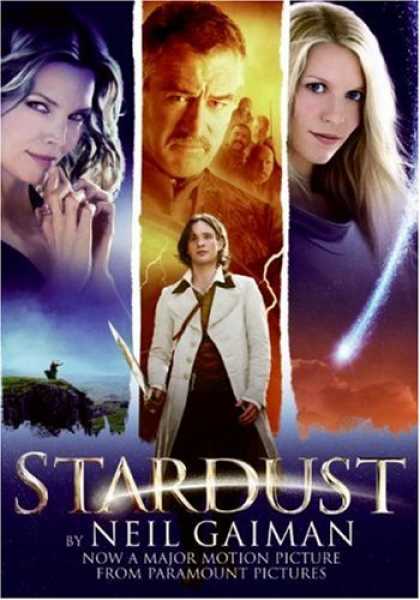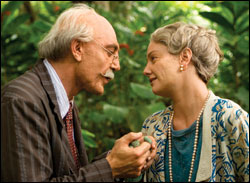Good Luck Chuck
Posted on January 15, 2008 at 8:00 am
At age 10, following an awkward Spin the Bottle encounter, a little goth girl puts a hex on Charlie so that he will be surrounded by love but never find it himself. But it is the audience who will feel cursed. It is hard to tell which is more painfully difficult to sit through — the awful premise of this film or the dull filler that occupies the rest of the time onscreen.
Charlie grows up into stand-up comedian Dane Cook and becomes a dentist. When word gets out that sex with him is a quicker path to marriage than eHarmony, every gorgeous woman in town wants to sleep with him so that she can find her one true love as soon as it is over. His best friend Stu (Tony award-winner Dan Fogler), a plastic surgeon specializing in breast enhancement, disgusting, sex-obsessed conversation, and having sex with citrus, persuades Charlie that this is practically a public service, helping women to find love while having lots and lots and lots of sex. Charlie gives in and has sex with just about every unattached female in the state.
And then he meets the adorably klutzy Cam (Jessica Alba), who runs the penguin house at the local equivalent of Sea World. But he worries that if he has sex with her, she’ll meet the man of her dreams. So he has to find a way to romance her without sex.
Cook is an observational comic who thinks that referring to something is the same as making a joke about it. He is physically energetic but intellectually lazy. His appeal comes from his utter lack of embarrassment and complete absence of boundaries, making college kids feel understood and connected. His stand-up routine is the equivalent of a Facebook page. This movie is like one of his jokes, all set-up, and then a lot of energy in the hopes the audience won’t notice there is no real pay-off. We get that it is supposed to be funny that Charlie has a lot of sex with pretty girls. But they drag the joke on forever, showing Cook in a dozen different positions, not because it is particularly funny or sexy but because they have 90 minutes to fill and hope we will be distracted by all those breasts. Any movie that has to fall back on a climactic race to the airport for drama and having sex with food for comedy has run out of ideas before it began. Oh, and please don’t bother to stay for the last little improvised “joke” over the credits.
One more aspect of this film that is particularly troubling is that it is an extremely raunchy R-rated film but its humor is so juvenile its most likely audience is young teenagers, the only group likely to find it funny just because it has naughty words and naked ladies. Anyone old enough to see this movie is likely to be too old to find much to laugh at.
Parents should know that this film has extremely explicit and crude sexual references and situations and a great deal of nudity that would rate an NC-17 if in anything but a comedy. Characters use very strong and vulgar language. There is comic violence (no one badly hurt). Characters drink, including one who drinks to deal with stress, and one character is a pothead, a frequent source of humor.
Audiences who see this movie should talk about which time-honored techniques the film uses to keep Charlie a sympathetic character, despite some crass, selfish, and exploitive behavior. What made him see Cam differently?
Audiences who enjoy this film will also enjoy The 40-Year-Old Virgin and Knocked Up
.

 Tristan (Charlie Cox) promises to bring back a fallen star to win the hand of the girl he loves. To find it, he must cross the wall that divides his village from the magical land of Stormhold on the other side. It turns out that he has a connection to Stormhold that he did not know. And it turns out that the fallen star is not an it but a she — the star has a human form, a woman named Yvaine (Claire Danes). And so begins a journey that will include sword fights and transformations, captures and escapes, bickering and kisses, encounters with rascals, villains, and imprisoned princesses, and reunions with unexpected lost connections.
Tristan (Charlie Cox) promises to bring back a fallen star to win the hand of the girl he loves. To find it, he must cross the wall that divides his village from the magical land of Stormhold on the other side. It turns out that he has a connection to Stormhold that he did not know. And it turns out that the fallen star is not an it but a she — the star has a human form, a woman named Yvaine (Claire Danes). And so begins a journey that will include sword fights and transformations, captures and escapes, bickering and kisses, encounters with rascals, villains, and imprisoned princesses, and reunions with unexpected lost connections.
